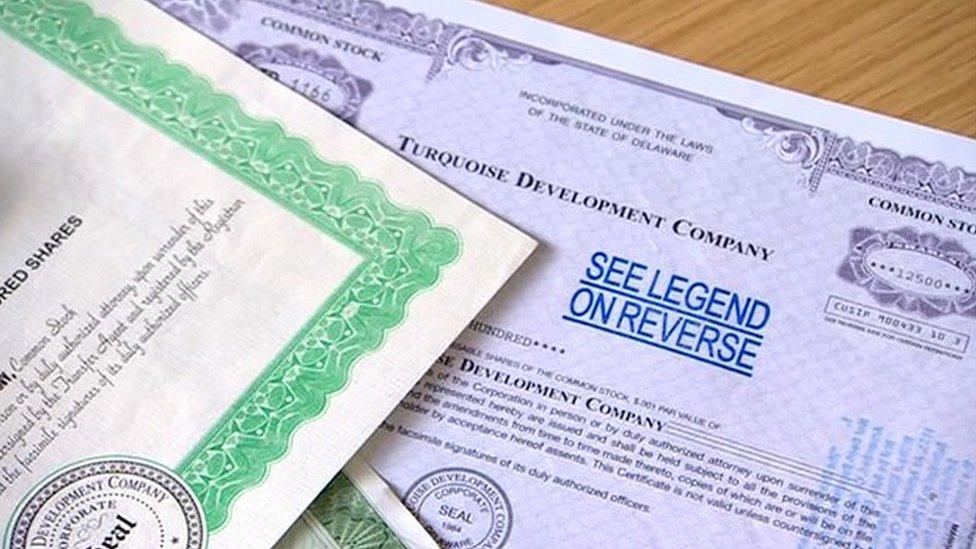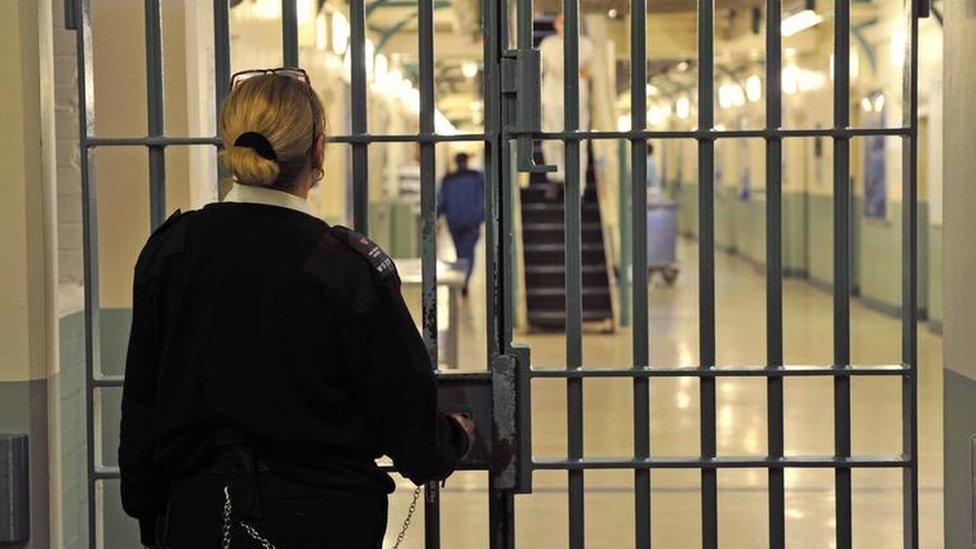New taskforce launched to combat fraud across UK
- Published

A new taskforce, consisting of police, banks and government officials, is being set up by Home Secretary Theresa May to combat fraud across the UK.
Part of its work will be to publish a list of the 10 most-wanted fraudsters and improve intelligence sharing between banks and police.
Figures suggest five million frauds occur every year in England and Wales.
Last week, figures showed a rise in so-called CEO fraud, where a worker moves cash after a "bogus boss" email.
In 2015, fraud was included in the official Crime Survey of England and Wales for the first time.
The survey suggested that during the previous year there were 5.1m frauds, including those relating to plastic cards and those committed over the phone or online, with just over half involving some financial loss.
'Shames our system'
The Joint Fraud Taskforce will include Financial Fraud Action UK, the City of London Police, National Crime Agency, Bank of England, fraud prevention agency Cifas and CEOs of the major banks.
The new taskforce will be announced by the home secretary at an event later on Wednesday, which will be attended by Bank of England governor Mark Carney.
The home secretary is expected to say that "fraud shames our financial system".
"It undermines the credibility of the economy, ruins businesses and causes untold distress to people of all walks of life," she is to say.
"For too long, there has been too little understanding of the problem and too great a reluctance to take steps to tackle it."
The force's task list will include:
Compiling a list of the top 10 fraudsters and organised fraud gangs they most want to catch
Quicker intelligence sharing between banks and law enforcement
National roll-out of training for bank staff to help identify victims and potential victims
Addressing difficulties victims face in getting refunds
Raising awareness of steps people can take to prevent fraud
Identifying weaknesses in computer systems and processes which fraudsters can exploit
In the 12 months ending in March 2015, 230,630 fraud offences were recorded by police in England and Wales, an increase of 9% on the previous year.
A further 389,718 fraud offences were reported by industry bodies, 17% up on the year before.
Figures from Financial Fraud Action UK, the body which co-ordinates the finance industry's response to fraud, show losses from online banking fraud rose by 48% in 2014 compared with 2013.
Overall losses on UK cards totalled £479m in 2014, up 6% on 2013 - the third consecutive year of increase.
New figures also show a surge in what is known as CEO or "bogus boss" fraud over the past six months.
From July 2015 until January 2016, 994 reports of CEO fraud were made to Action Fraud, the UK's national fraud and internet crime reporting centre.
The fraud will typically start with an email being sent from a fraudster - pretending to be a senior figure in the company - to a member of staff in its finance department. The member of staff will be told that they need to quickly transfer money to a certain bank account for a specific reason.
The largest reported amount of money given by a member of staff to a fraudster was £18.5m at a global producer of healthcare products - but the average amount is more in the region of £35,000.
Steve Proffitt, of Action Fraud, warned businesses to be on high alert.
"Employees should be encouraged to double check everything they do and never be rushed into transferring large amounts of money even if they do think that it's an important task given to them by their CEO," he said.
- Published2 October 2015

- Published20 October 2015

- Published17 September 2015

- Published26 May 2015

- Published8 January 2016

- Published25 March 2015
